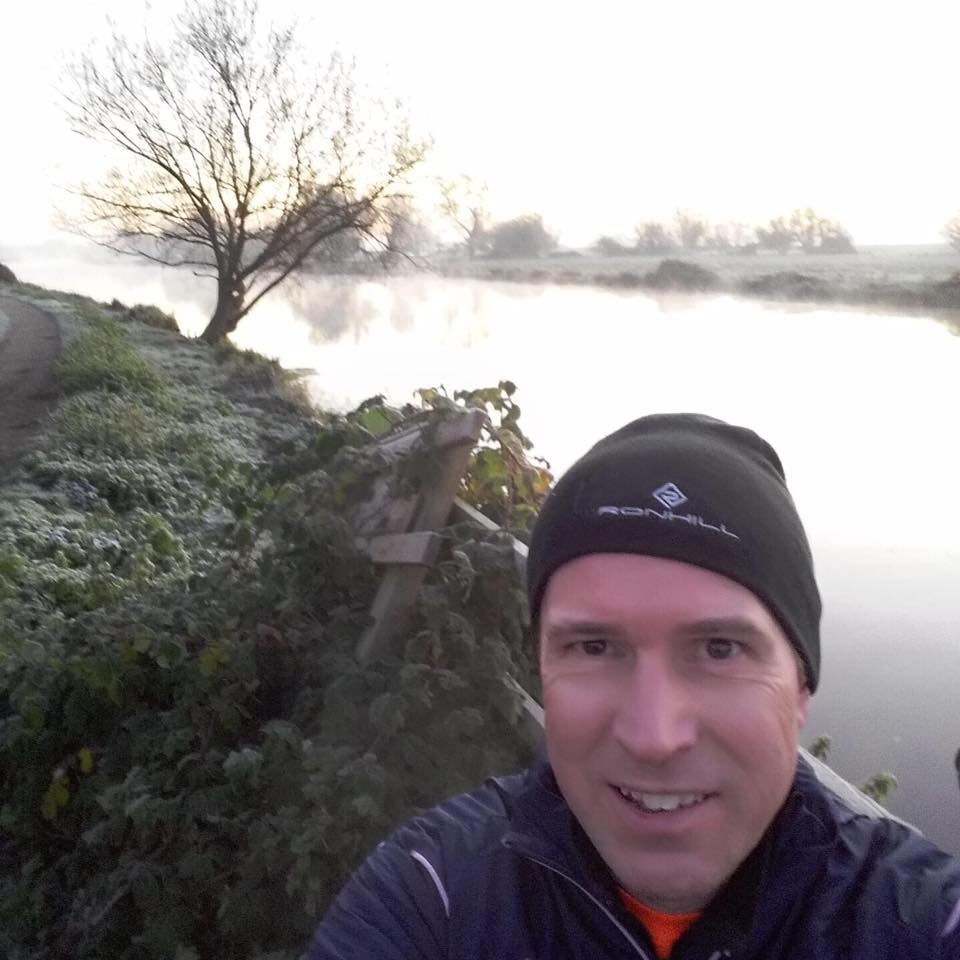Can Mental Health Apps Help Reduce Symptoms of Anxiety & Depression?
In my last two articles I wrote a lot about the research into cell phone and smartphone addiction and the potential cognitive impact of your smartphone.
Those two articles looked more at the costs of our smartphone dependence yet there is no doubt that there are many positives and benefits in what our smartphones are capable of doing. One such potential benefit is the ability to download all sorts of apps for all sorts of things, from games to productivity to communication. In fact, some statistics suggest that right now in 2019 there are well over two million apps you can choose from.
Apps can add to enjoyment and help us organise our lives and, naturally enough given the prevalence of issues, there are many, many apps that promise to help you improve your mental health. Yet aside from anecdotal suggestions and online reviews, it can be difficult to know how reliable any particular app actually is. Can you trust the content on your mental health apps? Are they based on solid science and evidence?
Recently (October 2019), a review was published assessing the inclusion of evidence based content on popular smartphone apps for depression and anxiety. So what did it say about these apps for depression and anxiety?
Are Mental Health Apps Helpful For Anxiety & Depression?
Before I get onto how evidence based these depression and anxiety apps are, it’s worth us casting our minds back to an article I wrote about a year ago about mental health apps.
In that article (you can go have a look at it here: Are Mental Health Apps Helpful For Anxiety?), I took a look at an analysis that aimed to identify how prominent mental health apps frame mental health, including who has problems and how they should be managed.
That research (Parker et al (2018), Mental health messages in prominent mental health apps) looked at over sixty mental health apps, most of which addressed anxiety, panic and stress. Amongst their analysis, Parker et al specifically noted that many of the apps claimed ‘vague scientific authority for their approach‘ and that ‘developers offered very limited scientific evidence for the apps’ claimed benefits.’
One of the dominant messages found in the apps was that people can easily manage their own mental health problems with apps. As I commented back then, apps are one tool in how you can seek to overcome mental health issues such as anxiety and depression but they may not be the only thing you need in order to do so.
As well as engaging with apps there are many other things that you can do that can help you with anxiety, depression and other mental health issues (the vast majority of my clients certainly find that the tools and strategies I give them and the hypnosis audios all form key components of a successful treatment plan).
And one of my favourite ways to stay mentally healthy is to exercise first thing in the morning. Research after research shows that exercise boosts mental health and, no matter how hard I find it sometimes to get out of bed on these dark, cold mornings, I always feel better after I’ve been for a run or been to bootcamp. I would always heartedly encourage anyone with anxiety and depression to include some form of exercise into their week.
Can Smartphone Mental Health Interventions Even Help With Anxiety and Depression?
Before looking at the inclusion of evidence based content in anxiety and depression apps, we want to be sure that smartphone apps can even help with these mental health problems.
A 2017 meta-analysis examined whether smartphone mental health interventions can reduce symptoms of anxiety. Despite the rapid growth of apps for anxiety and other mental health issues, Firth et al (2017) noted that there had been no systematic evaluation of the empirical evidence for using smartphones in the treatment of anxiety, making their review the first to look at this.
They found that there is ‘preliminary evidence that psychological interventions delivered via smartphone devices can reduce symptoms of anxiety, although further research is needed to establish the extent to which these effects are driven by the therapy itself vs. expectancy effects/performance bias” (Firth et al (2017), Can smartphone mental health interventions reduce symptoms of anxiety? A meta-analysis of randomized controlled trials).
By expectancy effects they are referring to the possibility that the results suggest that using a digital device in itself may offer some measure of psychological benefit, in the same way people can feel better if they are added to a waiting list or take some active action which they expect to help alleviate their symptoms.
And whilst anxiety apps offer a promising and efficacious method for managing anxiety, they also point out that there is currently a dearth of evidence on which groups may benefit most from smartphone apps for anxiety because, like any tool, there will be circumstances when these apps are likely to be useful but also those where they may cause harm or be ineffective.
There is also a lack of evidence for how smartphone applications for anxiety on their own compare to other psychological interventions and treatments.
A separate review, also published in 2017, looked at the effectiveness of internet and mobile based interventions for depressions in adult diagnosed with depression (Josephine et al, Internet-and mobile-based depression interventions for people with diagnosed depression: a systematic review and meta-analysis). As with the anxiety apps research, they found these interventions helped reduce depression symptoms compared to waitlist conditions and that this area also struggles with a lack of evidence of how these compare with active treatments such as face to face treatments.
So whilst limited in their findings, it could be argued that they suggest that inventions delivered by smartphone could help with depression and anxiety. Indeed, the very fact that so many millions of users are making use of these apps means that it is important to know if the apps include evidence based content that has been shown to improve mental health outcomes.
Popular Smartphone Apps For Anxiety and Depression: Are They Based On Evidence?
Smartphone applications for the treatment of anxiety and depression have attracted millions of users, yet little is known about the effectiveness of these commercially successful mental health apps and (until this latest research) whether they include content consistent with empirically supported interventions. Do the mental health apps that come top in the Apple and Google apps stores include evidence based content?
Wasil et al (2019) (A review of popular smartphone apps for depression and anxiety: Assessing the inclusion of evidence-based content) set out to examine the extent to which the content of digital mental health interventions correspond to content that has been shown to improve anxiety and depression outcomes.
To do this they identified twenty six evidence based treatment elements and looked at the frequency of these elements within the most popular mental health apps. Rather than looking at all apps they focused on those most likely to be encountered by users in everyday use (the most popular in search results) and they concentrated on apps for depression and anxiety reaching a final sample of twenty seven apps).
So how many of these twenty six scientifically supported treatment elements appeared in the most popular apps? Wail et al found that most apps contained between one and eight elements, with the highest number of evidence based treatment elements being eleven and the lowest zero.
As the researchers point out, mental health apps with more treatment elements are not necessarily ‘better’ than apps with fewer. Some people may benefit from apps that have a breadth of options whereas others may prefer to focus on one particular element or skill. In addition, some apps for anxiety and depression may include a large number of treatment elements that are not evidence based and others may only offer evidence based elements.
Psychoeducation, relaxation, meditation, mindfulness and assessment were the most frequent elements contained in the apps. Some of the treatment elements were not contained within any of the apps or appeared infrequently (e.g. problem solving, homework assignments and assertiveness training). Overall, their findings highlighted some empirically supported treatment elements that are currently poorly represented within mental health apps, such as exposure, cognitive restructuring and problem solving for anxiety, and cognitive restructuring and problem solving for depression.
This research is not sufficient to draw causal claims about the factors influencing the effectiveness of mental health apps for anxiety and depression. Some treatment elements may only be effective when delivered in specific contents or by certain methods of therapy. And there may be a limit to the potential of unguided self help apps to improve your mental health.
And as they conclude,
‘MH apps may play an important role in expanding access to evidence-based mental health services. We found that existing MH apps appear to use some evidence-based practices, a promising finding given that many of these apps have been downloaded hundreds of thousands of times.
However, some evidence-based treatment practices are rarely used in MH apps, providing an important direction for research on new MH apps. Importantly, noting the inclusion of evidence-based practices is best regarded as a first step toward evaluating MH apps.
Randomized controlled trials testing whether the MH apps actually convey measurable mental health benefits to users are necessary, and such trials should figure prominently in the research agenda for the years ahead‘ (A review of popular smartphone apps for depression and anxiety: Assessing the inclusion of evidence-based content).
Can Mental Health Apps Help Reduce Symptoms of Anxiety & Depression?
All of the above seems to demonstrate that our knowledge on the effectiveness of mental health apps to reduce symptoms of anxiety and depression is still in its infancy.
There is preliminary evidence that apps can help with anxiety and depression although more research is needed to discover who is most likely to benefit (and who may get no benefit) and how they compare against other therapeutic treatments, such as face to face therapy. And whilst some apps contain elements of evidence based treatment, many do not and there are currently many gaps in what is offered. Even knowing that there are scientifically supported elements in an app does not necessarily mean that the app is effective in alleviating symptoms of anxiety and depression.
With the ever rising use of our smartphones and the ongoing availability and convenience of mental health apps, it seems very likely that more and more research will appear on their effectiveness.
In the meantime, it makes sense to consider anxiety and depression apps as one of your tools available in your mental health treatment programme, alongside other available resources.
To your success
Dan Regan
Hypnotherapy in Ely & Newmarket
Seeking help to reduce symptoms of anxiety and depression? Book your Complimentary Hypnotherapy Strategy Session with Dan now: Appointments
Find out what other people have said after their hypnotherapy sessions with Dan: Testimonials
And check out these powerful hypnosis downloads that can start helping you right away: Hypnosis Downloads
References:
Firth, Joseph, John Torous, Jennifer Nicholas, Rebekah Carney, Simon Rosenbaum, and Jerome Sarris. Can smartphone mental health interventions reduce symptoms of anxiety? A meta-analysis of randomized controlled trials. Journal of affective disorders 218 (2017): 15-22.
Josephine, Koenigbauer, Letsch Josefine, Doebler Philipp, Ebert David, and Baumeister Harald. Internet-and mobile-based depression interventions for people with diagnosed depression: a systematic review and meta-analysis. Journal of affective disorders 223 (2017): 28-40.
Parker, L., Bero, L., Gillies, D., Raven, M., Mintzes, B., Jureidini, J. and Grundy, Q., 2018. Mental health messages in prominent mental health apps. The Annals of Family Medicine, 16(4), pp.338-342.
Wasil, Akash R., Katherine E. Venturo-Conerly, Rebecca Shingleton, and John R. Weisz. A review of popular smartphone apps for depression and anxiety: Assessing the inclusion of evidence-based content. Behaviour Research and Therapy (2019): 103498.






0 Comments